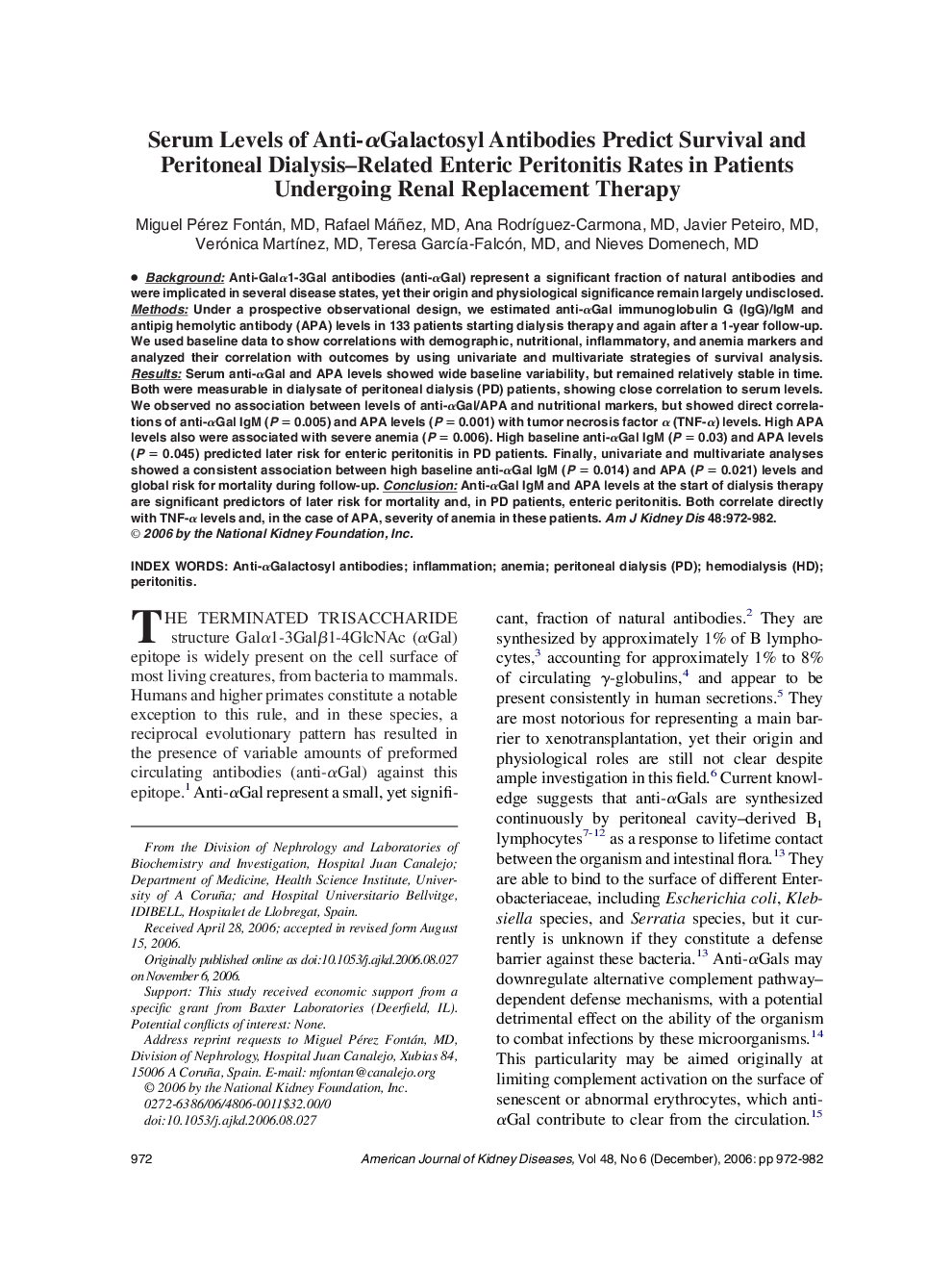| Article ID | Journal | Published Year | Pages | File Type |
|---|---|---|---|---|
| 3851415 | American Journal of Kidney Diseases | 2006 | 11 Pages |
Abstract
Background: Anti-Galα1-3Gal antibodies (anti-αGal) represent a significant fraction of natural antibodies and were implicated in several disease states, yet their origin and physiological significance remain largely undisclosed. Methods: Under a prospective observational design, we estimated anti-αGal immunoglobulin G (IgG)/IgM and antipig hemolytic antibody (APA) levels in 133 patients starting dialysis therapy and again after a 1-year follow-up. We used baseline data to show correlations with demographic, nutritional, inflammatory, and anemia markers and analyzed their correlation with outcomes by using univariate and multivariate strategies of survival analysis. Results: Serum anti-αGal and APA levels showed wide baseline variability, but remained relatively stable in time. Both were measurable in dialysate of peritoneal dialysis (PD) patients, showing close correlation to serum levels. We observed no association between levels of anti-αGal/APA and nutritional markers, but showed direct correlations of anti-αGal IgM (P = 0.005) and APA levels (P = 0.001) with tumor necrosis factor α (TNF-α) levels. High APA levels also were associated with severe anemia (P = 0.006). High baseline anti-αGal IgM (P = 0.03) and APA levels (P = 0.045) predicted later risk for enteric peritonitis in PD patients. Finally, univariate and multivariate analyses showed a consistent association between high baseline anti-αGal IgM (P = 0.014) and APA (P = 0.021) levels and global risk for mortality during follow-up. Conclusion: Anti-αGal IgM and APA levels at the start of dialysis therapy are significant predictors of later risk for mortality and, in PD patients, enteric peritonitis. Both correlate directly with TNF-α levels and, in the case of APA, severity of anemia in these patients.
Related Topics
Health Sciences
Medicine and Dentistry
Nephrology
Authors
Miguel Pérez MD, Rafael MD, Ana MD, Javier MD, Verónica MD, Teresa MD, Nieves MD,
